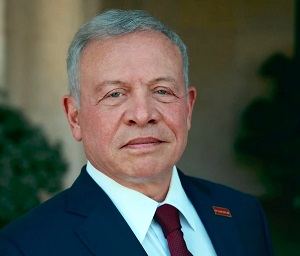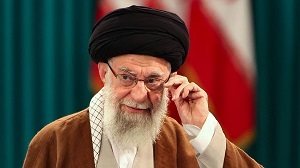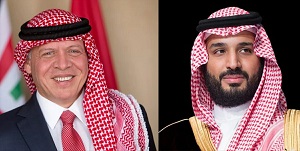Areej Abuqudairi , The Jordan Times
AMMAN — More than two months after Nadia Hashem was sworn in as minister of state for women’s affairs in May, many women say it is not clear what role the minister and her newly independent portfolio are playing.
In recent interviews with The Jordan Times, women from around Amman said they believed Hashem’s appointment corresponded to the formation of a new ministry, but as a minister of state, the former journalist and human rights activist does not oversee a “ministry” per se.
In addition, these women, who declined to give their full names, expressed uncertainty about the scope and mission of Hashem’s portfolio, and whether she had the authority or support to effect real change.
“It was on the news. We know they formed a ministry but we do not know how they will work and what their agenda is. It is still invisible after two months and most people do not even know it exists,” said Sura, a 23-year old student of media studies.
“We heard they appointed a minister. Is it one person so far, only? But I do not know what they are working on,” added Reema, 35.
Women had mixed feelings about the women’s affairs portfolio, which in previous governments was sometimes tied to the Ministry of Social Development and which Hashem is the first to hold independently.
Some saw the appointment of a women’s affairs minister as a positive step towards empowering women in the Kingdom.
“Any move that aims to support women is always a good thing. It shows progressive intentions from the government,” said Hanadi, a schoolteacher. “We have made some progress in women’s rights, but there is a lot more to do.”
Sura was more cautiously optimistic.
“It sounds like a nice idea. We need to be represented in the government, but we need to wait and see their plan and what they want to do first,” she said.
Others, however, expressed doubts over how “another ministry” could improve the situation of Jordanian women.
“I don’t have trust in the whole ministerial system in Jordan. And this one is just another ministry. I cannot see how it is going to be any different from other ministries. I do not think it will change women’s lives,” said Rania, who works for a local charity.
Haneen, a pharmacist in east Amman, said that a Cabinet portfolio dedicated to women’s issues would not be enough to change the social norms behind gender inequality in Jordan.
“A ministry will not change people’s mentality towards women and gender issues. Jordan is still influenced by strong social norms, which discriminate between men and women. Meetings and ministries will never be able to change that,” said the 32-year-old.
Whether or not they were optimistic about having a government body address their needs, the young women were unanimous in demanding “real” changes.
“We heard so much about women’s rights and empowerment. Yet, we are still living under discriminatory laws, which do not allow us to pass on citizenship to our children,” Rania said, alluding to the Citizenship Law, under which children of Jordanian women married to foreigners are not entitled to Jordanian passports.
“Some laws allow murderous men to get away under the name of honour,” she added. “This should change and it should be a real change, not only minor amendments to these laws.”
Jumana, who holds a master’s degree but is still out of work, said that addressing women’s unemployment should be a priority for Hashem.
“I worked hard to study and get an education. I moved to Amman from Ramtha to find a job. But jobs are either underpaid or have nothing to do with my previous education,” said the 28-year-old.
“We used to fight for our right to study. Now, there are so many women who go to university but then stay at home because there are no job opportunities in these areas. When women leave the house and earn income, they become more confident. Then, they can fight for their rights themselves.”
The most important thing, Sura said, is that the women’s affairs minister and other officials and activists involved in women’s rights listen to the women they are trying to empower.
“We want them to hear our voices and speak with women from all segments of society before making plans. They should ask us what problems we have. This way they will succeed in solving problems and finally empower women,” she said.
“Empowering half of society should be seen as a long-term goal,” she added.
Latest News
-
 King discusses regional developments, ways to restore calm with Arab, world leaders
King discusses regional developments, ways to restore calm with Arab, world leaders
-
 Jordan warns of wider conflict as US-Israeli strikes deepen Iran crisis
Jordan warns of wider conflict as US-Israeli strikes deepen Iran crisis
-
 Iran's supreme leader Khamenei confirmed dead: Trump
Iran's supreme leader Khamenei confirmed dead: Trump
-
 King discusses regional developments with Arab, world leaders
King discusses regional developments with Arab, world leaders
-
 King, Saudi crown prince discuss regional developments
King, Saudi crown prince discuss regional developments